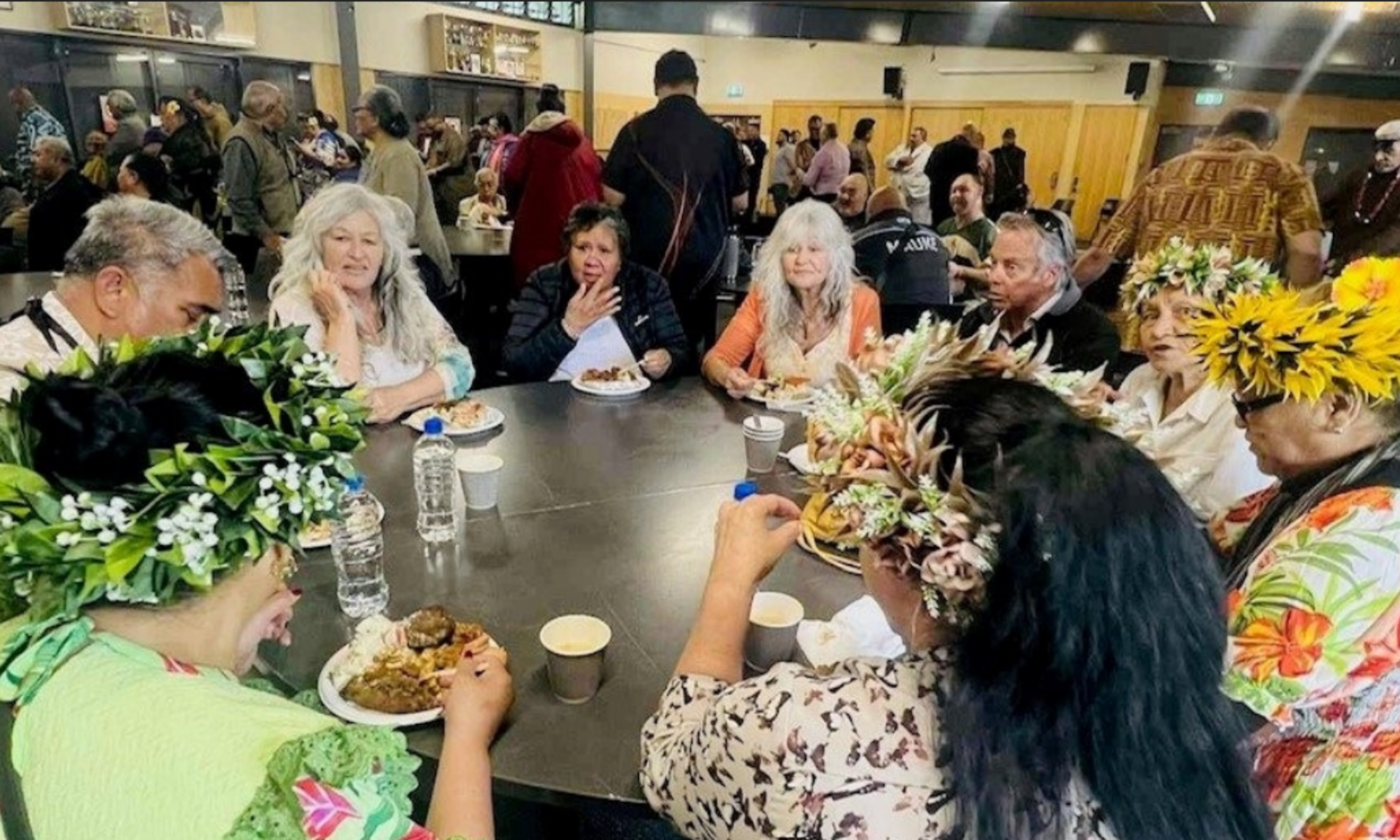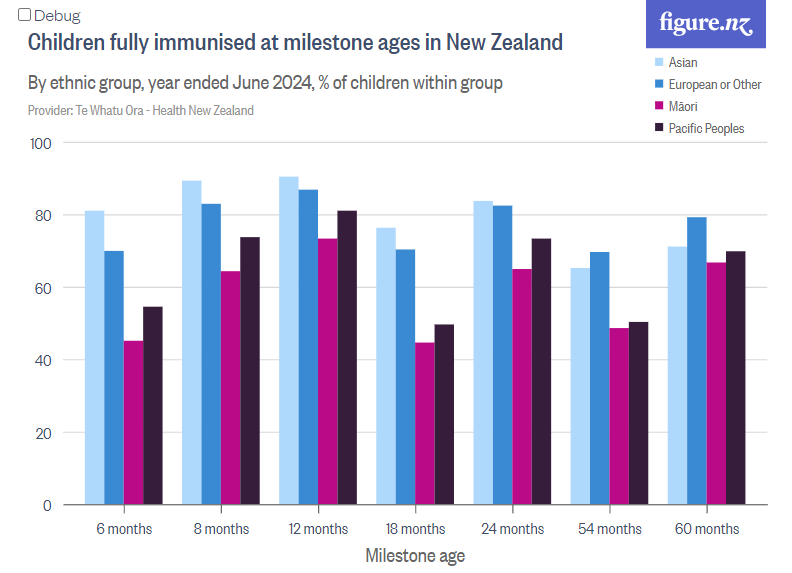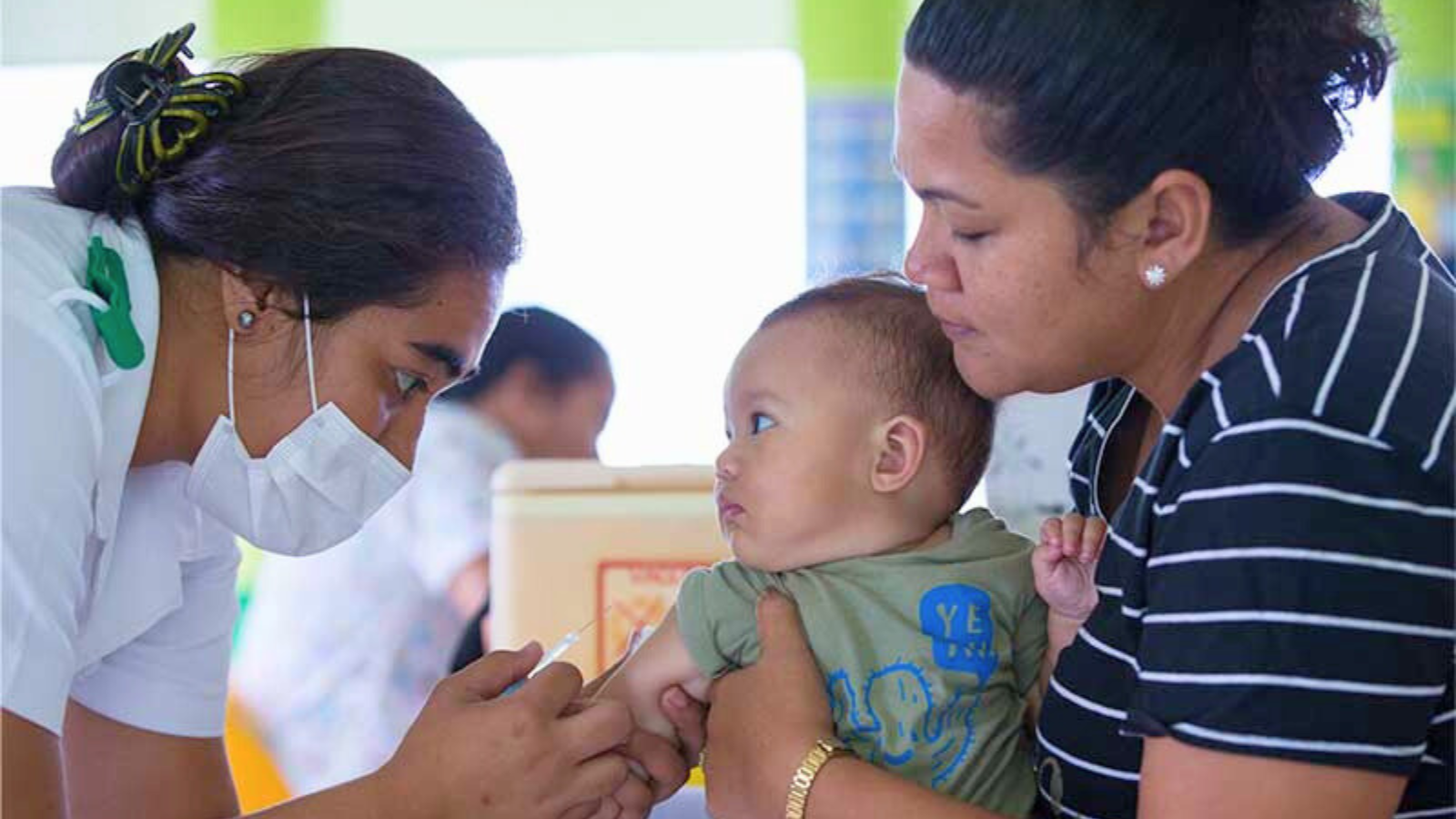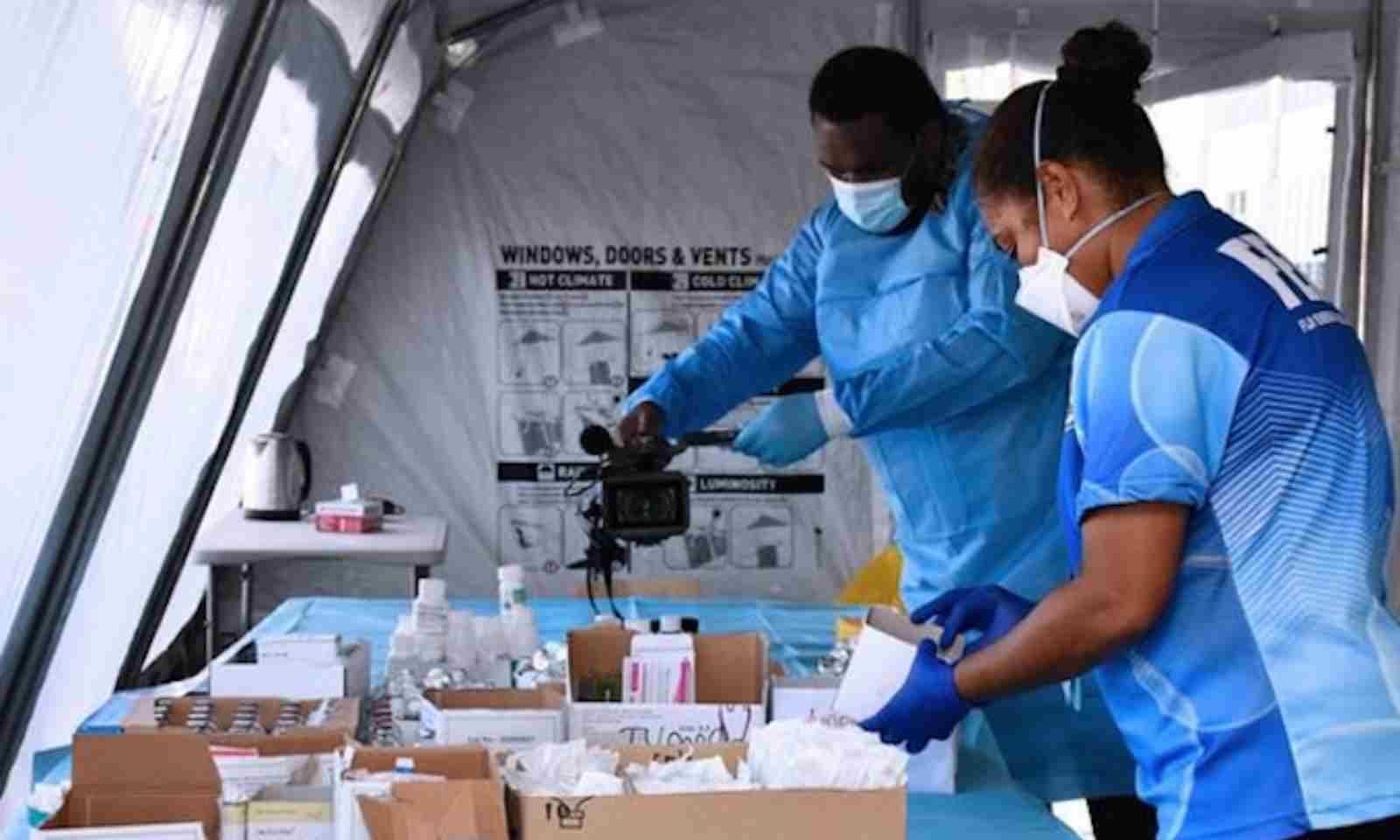

Sir Collin Tukuitonga (left) and Dr Corina Grey are urging Pacific communities to check their immunisation status.
Photo/File/MPP
Pacific communities urged to check measles immunisation as Auckland cases rise
Health experts warn that low vaccination rates could put New Zealand’s health system under pressure if measles continues to spread.


Blacklisting squeeze hits Vanuatu families and businesses, the regulator VFSC warns


Pack your tissues: Free movies return with Tinā set for South Auckland

Manurewa charity requests $30,000 to keep Pacific seniors monthly gatherings

Blacklisting squeeze hits Vanuatu families and businesses, the regulator VFSC warns


Pack your tissues: Free movies return with Tinā set for South Auckland
New Zealand is experiencing a growing outbreak of measles, prompting health officials to encourage people to check their immunisation status.
One case reported in Auckland brings the total number of infections in the current outbreak to 14, with 26 cases recorded this month alone. The latest case was at Auckland Grammar School while infectious, with students in Year 9 and 10 asked to stay home today.
More than 2000 people are considered close contacts of the infected, and locations of interest include Wellington, Taranaki, Nelson and Auckland.
Speaking with Pacific Mornings host William Terite, Sir Collin Tukuitonga, a public health expert at Auckland University, says there is particular concern for Pacific and Māori communities.
“Given the low vaccination rates, the risk is elevated. Measles is a serious disease,” he says. “The initial cases were all reportedly imported, but now there's reasonable evidence that there's local transmission. The last time we had it, I think one third of the people affected ended up in hospital.”
Tukuitonga attributes the low vaccination rates in Pacific communities to a combination of misinformation and access issues.
Listen to Sir Collin Tukuitonga's full interview below.
But he says that community-led events have helped raise awareness. “People got a bit tired with Covid and being told to get vaccinated for this and that, so there’s an element of fatigue.
“There’s misinformation and people listening to influential voices saying vaccination isn’t what we, the mainstream people, are advising. When our folk organised the drive-ins through the churches, our vaccination rates for Covid went up.”
Measles symptoms can include a high fever (over 38°C), cough, runny nose, and sore red eyes (conjunctivitis) and a rash, which begins on the face and gradually spreads down the body to the arms and legs, and can last up to one week.

Measles in infants can be life-threatening. Photo/Center for Disease Control and Prevention (DCD)
Public health authorities warn that if the outbreak worsens, the health system could struggle to cope with over 100 measles cases per week.
Dr Chris Puli’uvea, an immunology lecturer at Auckland University of Technology, says one infected person can spread the virus to up to 18 others. “The measles virus can stay airborne and survive for up to two hours in little droplets. The best line of protection for us is to get fully vaccinated and get two doses of the MMR vaccine.”
Pacific immunisation rates continue to lag
Under the National Childhood Immunisation Schedule, children receive the measles, mumps, and rubella (MMR) vaccine at 12 and 15 months.
The vaccine can also be administered to babies as young as four months if they are travelling to areas with outbreaks, are close contacts of infected people, or during uncontrolled community transmission.

Pacific and Māori children continue to have the lowest immunisation rates. Image/Figure.nz
As of June last year, only half (49.6 per cent) of Pacific 18-month-olds were fully immunised. Dr Nick Chamberlain, Director of National Public Health Service, says while vaccination coverage is improving, it remains too low to prevent further spread.
In Wellington, some parents are paying more than $200 to vaccinate children under 12 months, but Te Whatu Ora/Health New Zealand says the outbreak has not yet reached the point where early vaccination is required.
Measles was declared eliminated in Aotearoa in 2017, but a major outbreak in 2019 infected more than 2000 people and resulted in 81 deaths in Sāmoa.
Tukuitonga says no one wants a repeat of that disaster in Sāmoa, because it could easily affect families and whānau in Aotearoa.
Officials are urging anyone under the age of 56 to ensure they have received both doses of the MMR vaccine and to check their immunisation status at pharmacies or clinics.

Parents in Sāmoa are urged to vaccinate their children as measles cases climb in New Zealand. Photo/UNICEF
Before the measles vaccine was developed, most people contracted the virus in childhood, so those born before 1969 are generally considered immune. Universal vaccination was also introduced in New Zealand that year.
Dr Corina Grey, Director of Public Health, encourages people to consult with their general practitioner (GP). “If you’re unsure and you’ve checked with your doctor, it’s safe to get another dose of MMR, and those are free through pharmacies,” Grey tells Radio New Zealand.
Rising HIV cases in Fiji
Meanwhile, Tukuitonga says health authorities in Fiji are dealing with a rise in Human Immunodeficiency Virus (HIV) cases, largely linked to intravenous drug use rather than sexual transmission.
“I’m told it’s largely a reflection of drug use in this phenomenon called bluetoothing, where drug users inject themselves, withdraw some blood and share it on,” he says.

Health officials are concerned that the lack of easy HIV testing and shortages of vital medical supplies mean many cases go undiagnosed and untreated. Photo/Fiji Ministry of Health and Medical Services
“This is not your kind of traditional transmission. It’s more to do with drug use, and IV drug use doesn’t spread around the region. I think it should be contained, but there’s no question it is a concern for Fiji and the region.”
Fijian authorities are rolling out testing and needle exchange programmes, with support from the World Health Organization (WHO) and regional partners, to help contain the spread.
Measles health information
If you suspect you may have measles, please phone ahead before visiting your doctor, or your Hauora Māori Provider or Pacific health provider so they can take precautions to prevent measles spreading. You can call Healthline for free anytime on 0800 611 116 for information and advice.
Locations of interest can be found here. If anyone at these locations develops measles symptoms (even if they have resolved), they should contact Healthline on 0800 611 116 urgently for advice.
People can check their immunity status by visiting this link or calling the Vaccination Helpline for free on 0800 28 29 26.